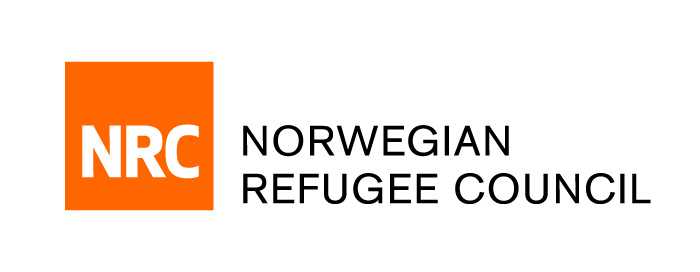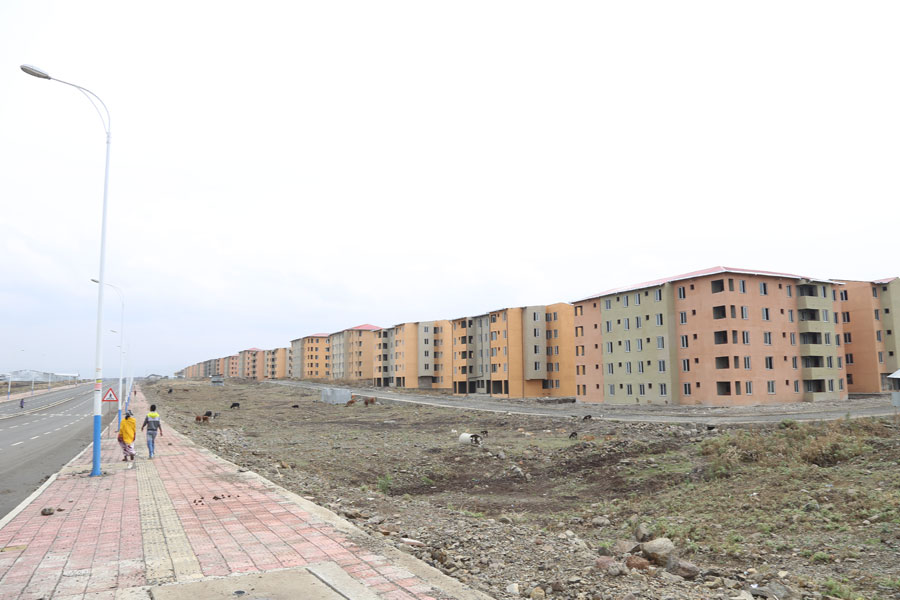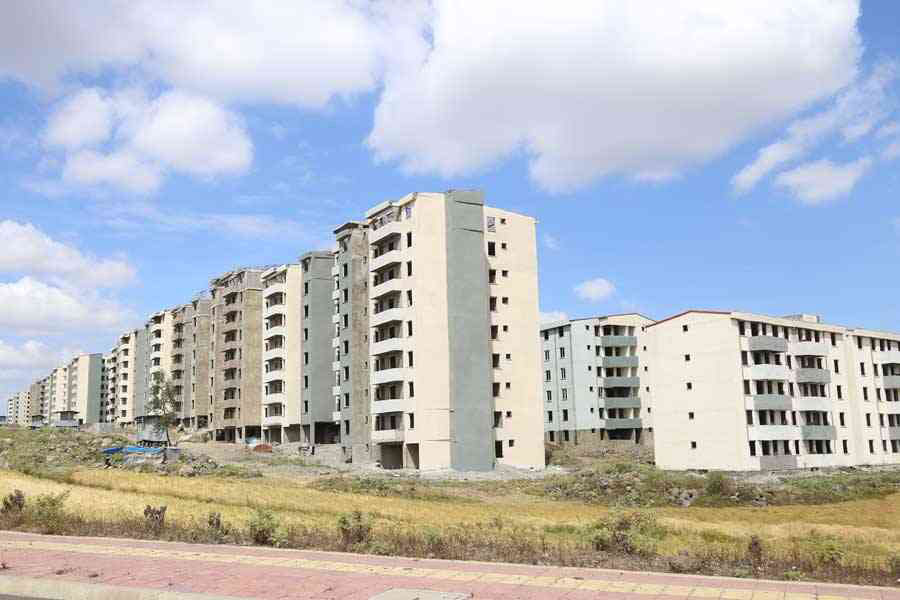
Viewpoints | Nov 27,2021
Apr 6 , 2024
By Eden Sahle
Last week's decision by lawmakers to regulate rental properties has sent shockwaves through the city. While many residents see it as a beacon of hope, others remain sceptical. Addis Abeba faces a severe housing crisis. The demand for affordable housing far exceeds the supply, forcing people into cramped, substandard dwellings or leaving them at the mercy of high rents for decent accommodation. This situation has widened the gap between rich and poor, exacerbating social inequalities.
Many residents pay exorbitant rents for one-room galvanised steel houses that lack basic amenities. Despite the excitement surrounding the new regulations, there is a sense of cautious optimism. Tenants fear landlords accustomed to exorbitant rents may find ways to circumvent the system. They point to past experiences where citing previous rent control laws offered no protection from eviction or rent hikes.
Even those living in high-end rentals remain apprehensive. They believe landlords will find ways to maintain their income, either through informal payments or circumventing the regulations entirely.
While rent control seems like a quick fix, it may indeed benefit tenants in the short term by offering stability, but it could also have unintended consequences. Landlords might resort to demanding informal "top-up" payments to compensate for reduced rental income. Meanwhile, desperate renters could be forced to pay above the regulated rate to secure a place to live.
The risk of reduced housing availability is another concern. Faced with lower returns, landlords might withdraw properties from the market, further constricting the already limited supply. I believe a more comprehensive approach is needed; a combination of policies, including increased investment in social housing projects.
Some view rent control as a temporary crisis response, while others argue it could be a long-term measure to prevent market excesses. However, potential economic drawbacks loom in the absence of addressing the root cause of the crisis. Examples like India illustrate the potential pitfalls of rent control. In some cases, it led to a decline in property quality as landlords opted to exit the market, leaving tenants in even worse conditions.
There is a consensus among housing scholars: rent control alone cannot solve the problem. It must be implemented alongside increased social housing initiatives and additional measures to address affordability. Economists with strong opposing views believe rent control deters investment in the rental market. Reduced returns could discourage new entrants and incentivise existing landlords to exit, ultimately decreasing the available housing stock.
Furthermore, limited rental income could discourage landlords from properly maintaining their properties. This could lead to a deterioration of existing housing, impacting the quality of life for tenants.
Looking beyond traditional methods, exploring affordable construction technologies could offer promising alternatives. Incentivising the private sector through tax breaks, subsidies, and land grants could encourage increased development of affordable housing projects. Public-private partnerships could also play a vital role in addressing the housing shortage.
Tax exemptions have proven successful in encouraging the development of affordable housing. This approach not only increased the supply of affordable units in countries like India but also benefited developers.
Residents' concerns highlight the need to address potential loopholes in the rent control scheme. The government must consider inflation in property costs and explore additional solutions to ensure a balance between affordability for tenants and a fair return for landlords.
Ultimately, a sustainable and fair housing market requires a delicate balance. Rental prices need to cover landlords' expenses while remaining accessible for tenants. Only then can Addis Abeba address its housing crisis and ensure a decent standard of living for its residents.
PUBLISHED ON
Apr 06,2024 [ VOL
25 , NO
1249]

Fortune News | Jun 10,2021

Fortune News | Mar 09,2019

Fortune News | Mar 11,2023


Fortune News | Aug 29,2020

My Opinion | 131970 Views | Aug 14,2021

My Opinion | 128359 Views | Aug 21,2021

My Opinion | 126297 Views | Sep 10,2021

My Opinion | 123912 Views | Aug 07,2021

Dec 22 , 2024 . By TIZITA SHEWAFERAW
Charged with transforming colossal state-owned enterprises into modern and competitiv...

Aug 18 , 2024 . By AKSAH ITALO
Although predictable Yonas Zerihun's job in the ride-hailing service is not immune to...

Jul 28 , 2024 . By TIZITA SHEWAFERAW
Unhabitual, perhaps too many, Samuel Gebreyohannes, 38, used to occasionally enjoy a couple of beers at breakfast. However, he recently swit...

Jul 13 , 2024 . By AKSAH ITALO
Investors who rely on tractors, trucks, and field vehicles for commuting, transporting commodities, and f...

Jul 5 , 2025
Six years ago, Ethiopia was the darling of international liberal commentators. A year...

Jun 28 , 2025
Meseret Damtie, the assertive auditor general, has never been shy about naming names...

Jun 21 , 2025
A well-worn adage says, “Budget is not destiny, but it is direction.” Examining t...

Jun 14 , 2025
Yet again, the Horn of Africa is bracing for trouble. A region already frayed by wars...

Jul 6 , 2025 . By BEZAWIT HULUAGER
The federal legislature gave Prime Minister Abiy Ahmed (PhD) what he wanted: a 1.9 tr...

Jul 6 , 2025 . By YITBAREK GETACHEW
In a city rising skyward at breakneck speed, a reckoning has arrived. Authorities in...

Jul 6 , 2025 . By NAHOM AYELE
A landmark directive from the Ministry of Finance signals a paradigm shift in the cou...

Jul 6 , 2025 . By NAHOM AYELE
Awash Bank has announced plans to establish a dedicated investment banking subsidiary...